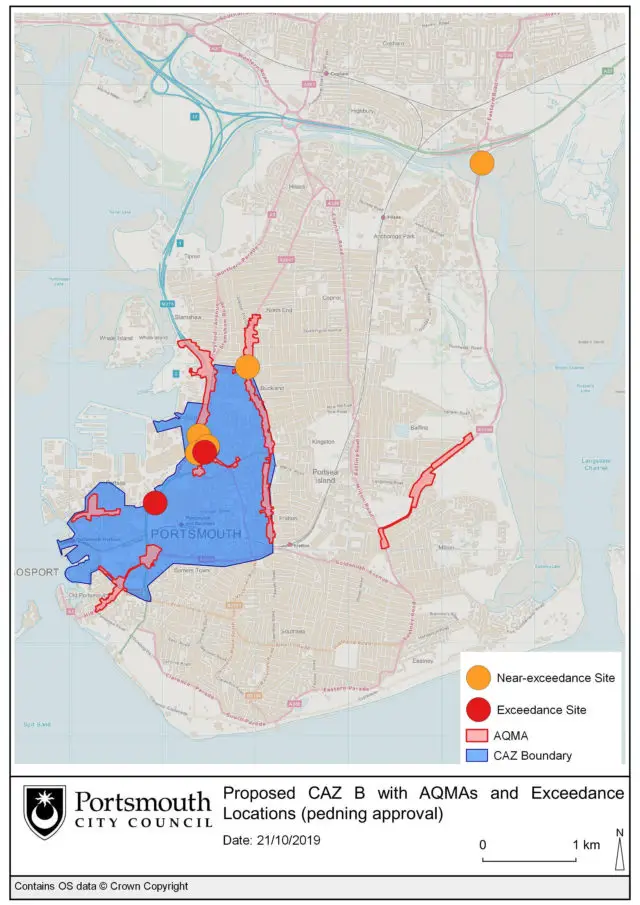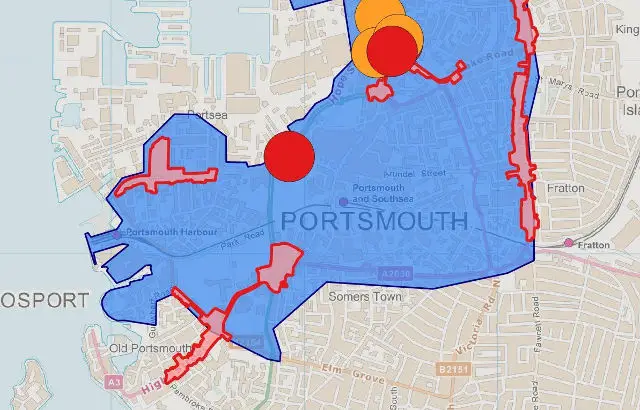The centre of Portsmouth could become a chargeable clean air zone – rather than the whole of Portsea Island – if new plans are approved, but some are concerned this ‘will not be enough’.
In the latest government-imposed plan to bring pollution levels in Portsmouth down to a ‘safe level’, the council will consider a smaller, targeted zone in the south west of the city.
It comes after modelling conducted by the council showed a reduced zone to the west of London Road would still result in required air quality levels by 2022.
Vehicles going to and from the Wightlink vehicle ferry will have to drive through the chargeable clean air zone.
Ashmore: Brings compliance within shortest possible time
Portsmouth City Council’s head of environment, Cllr Dave Ashmore, said:
“It’s tackling what’s needed, it’s tackling the problem areas where the air quality is bad and it’s based on the consultation we had with people and businesses about how it would affect them.
We’ve modelled it on this area and it brings compliance within the shortest possible time.”

Only affects certain vehicles
Preference for a class B zone, which will only affect buses, coaches, heavy goods vehicles (HGVs) and taxis that are not compliant (euro 4 emission petrol vehicles and euro 6 diesel vehicles), still stands.
But Portsmouth Green Party member and clean air campaigner, Tim Sheerman-Chase, said:
“My concern already was that the class B zone is not going to be enough to reach compliance.
“There have been examples of class D zones, where all vehicles are affected, in Germany where pollution has gone down a small percentage. That kind of drop still will not be enough for Portsmouth.”
Charges for non-compliant vehicles
As part of the clean air zone non-compliant taxis could be charged £10 a day, with non-compliant HGVs, buses and coaches hit with a £50 a day charge.
Self-employed taxi driver Matt Cane, who is based in Havant, said:
“My car meets the requirements of the clean air zone but other drivers will end up having to do what has happened in London and just avoid the chargeable zone.
“And I think taxis will find a way to put prices up for customers to incorporate the charge. It will be the same with businesses who will have to raise prices for customers to make up for it.”
Bid for funds to help businesses
If the plan, which has to be submitted to government by 31st October, is approved, Portsmouth will be able to bid for funds from a £220m pot of cash to help any local businesses replace their non-compliant vehicles.
The cost of implementing the zone, including around 80 number plate recognition cameras that will be needed, will be covered in full by the government.
It is thought the clean air zone will be implemented by September 2021 if everything is approved.
This article is from the BBC’s LDRS (Local Democracy Reporter Service) scheme, which OnTheWight is taking part in. Some alterations and additions may be been made by OnTheWight. Ed
Image: armydre2008 under CC BY 2.0





